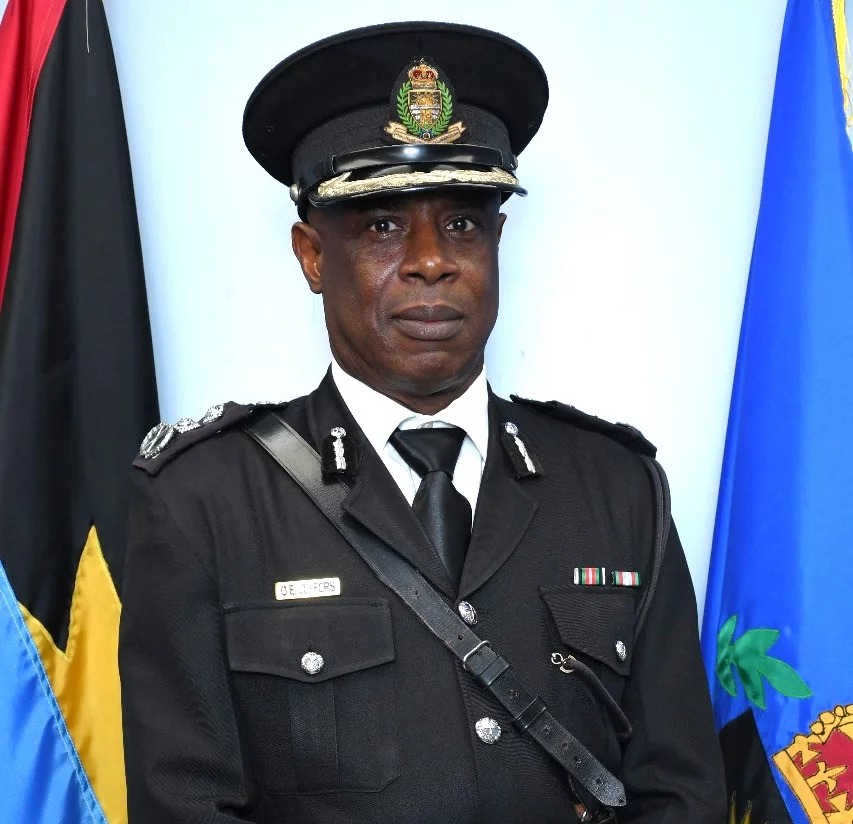Acting Commissioner of Police (ACP) Everton Jeffers has applauded the launch of the new Bachelor of Science course in Criminology and Criminal Justice being offered at the University of the West Indies Five Islands Campus (UWIFIC) describing it as a “great initiative” that will significantly strengthen the region’s ability to combat crime.
Speaking on Observer media, Commissioner Jeffers emphasized the critical importance of training and modern tools in policing, noting that this new program is a much-needed step toward bringing law enforcement in Antigua and Barbuda and the Caribbean in line with global best practices.
“I think it’s a very important gesture made by UWI and the various governments around the region,” ACP Jeffers said. “You cannot fight crime unless you’re properly trained to do so. Training and tools — those are the two key ingredients for effectiveness in law enforcement.”
The program, which emphasizes modern security practices including artificial intelligence and data analytics, is designed with a strong regional focus. Jeffers noted that as criminals become more tech-savvy, police forces in the region must also evolve by embracing new investigative methods and technology.
“We need to keep up with the times. Criminals are learning from television and the internet — they know how to avoid leaving DNA, how to dispose of evidence. Meanwhile, too many of us are still stuck using outdated techniques,” he explained. “This program gives our officers the tools to match, and even outpace, today’s criminal tactics.”
One of the key features of the degree programme is its flexible format. Much of the program is offered online, making it easier for officers to pursue their studies while continuing to serve in their home countries.
Commissioner Jeffers pointed out that even before completing the course, officers would be able to apply their learning on the job. “As you attend the classes, you’re learning. You can use that knowledge practically while you’re still at work,” he said. “It’s not just about a piece of paper at the end; it’s about immediate impact.”
He also acknowledged that while earning the degree might not guarantee automatic promotions, it certainly improves an officer’s chances for advancement and leadership roles in the future.
“Knowledge is power. This is about building yourself, preparing not just for now, but for what’s to come,”ACP Jeffers stated.
He strongly supports the program’s regional context, explaining that a homegrown academic framework is better suited to the legal and social realities of the Caribbean than imported models from North America or Europe.
“There are things that might be allowed under U.S. or British law that we can’t do here,” he explained. “We need training that reflects our own systems, our own laws, and our own communities. That’s what makes this program so valuable.”
He also stressed the need for Caribbean law enforcement officers to hold their own on the international stage, saying the region must contribute knowledge as well as learn from global counterparts.
“When I go to meetings with commissioners from larger countries, we must be able to speak on the same level—and they should also be able to learn from us. That’s why education and training like this matter.”
Commissioner Jeffers, who has a background in psychology, said he will not personally be enrolling in the program, but has been actively encouraging officers under his command to take advantage of the opportunity, especially now that scholarships are available.
“In our time, we had to pay out of pocket if we wanted to study something like this,” he said. “Now officers have a real chance to pursue higher education without that burden. I’m encouraging all of them go, build yourself, learn. It will help you, and it will help us all,” he said.
“We cannot use 19th-century methods to solve 21st-century crimes. This new degree program is exactly the kind of forward thinking that Caribbean policing needs.”




